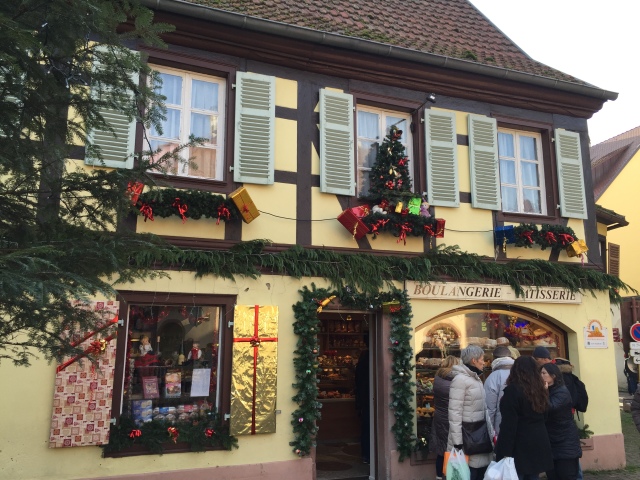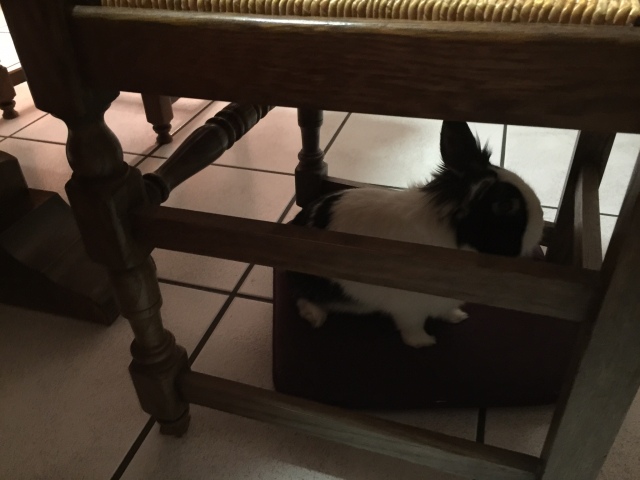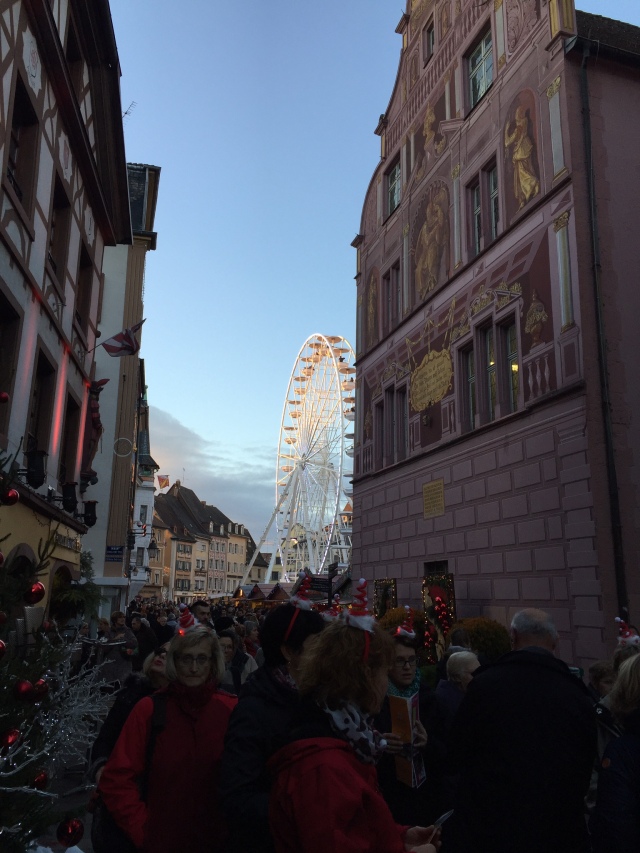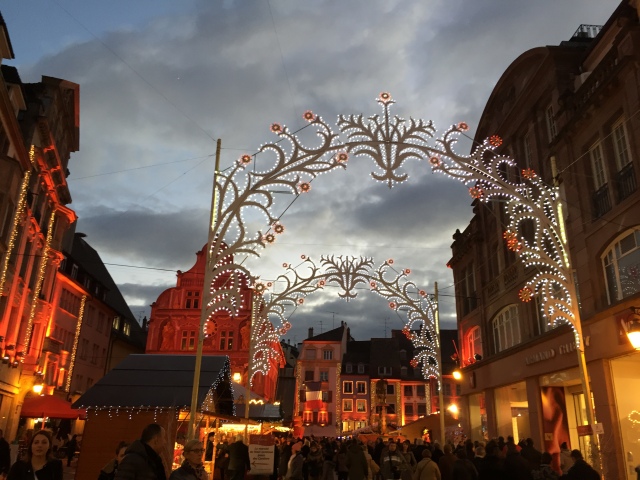It has been a fun three months teaching English. I can tell that I am not cut out to be an elementary school teacher (that takes some real grit) but I enjoy teaching.
I like teaching the CE2 (8 year olds) the best. They learn reasonably fast, but they are still enthusiastic and excited about learning English, which is not the case with the oldest class I have, who are 10 years old.
The 6 and 7 year olds are the cutest, but they learn sooooo slowly. In general, all the children learn more slowly than I thought they would, but the 6-7 year olds move at snail pace. After 2 months of work they only know their colors, numbers up to 10, and some simple commands like point and look, how to respond to and ask ‘how are you?’ and ‘What’s your name? and ‘Are you a boy or a girl?’ (Kind of a weird question to ask if you ask me, but some of the teachers wanted to teach it)’.
I am not sure how much the students will actually learn by the end of the year because in some classes, they only learn English when I am there. 45 minutes once a week isn’t much. In other classes, the teachers work with them twice a week on English and I can really tell the difference.
One of the challenges for me is knowing when to move on to the next objective with a class, because the kids learn at different paces. Some kids knew all the colors after the first day, and some kids still don’t know any colors except blue, black, and red. How do teachers decide?!?
But a day teaching the kids is full of cute moments, especially because they have really adorable accents.
Here are some anecdotes for your entertainment.
**Disclaimer** The following anecdotes are cute and fun, but they were million times cuter in real life, with real French kids. Also, as in all my blog posts, dialogue in italics was actually spoken in French.
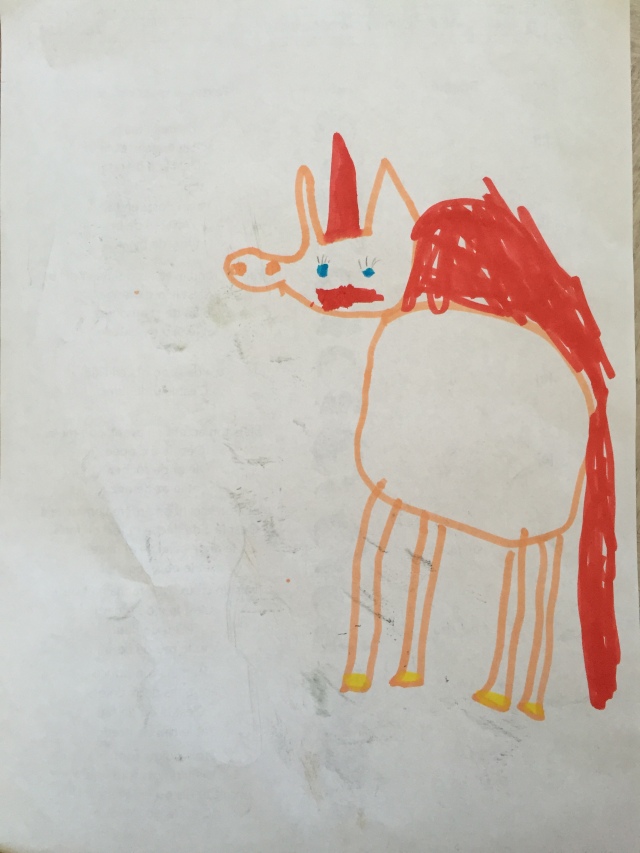
One day I went around the class checking students’ work. One kid wrote
A war u?
I was so confused!! It took me a minute to realize that what he meant was How are you?
When you say it with a French accent it makes sense:)
One teacher introduced me to her class of 6 year olds. ‘She is from the United States. Do you know anyone from the US, any famous people?’
‘François Hollande?’
François Hollande is the French president.
One little boy came up to me before class and asked, ‘Do you live in France or do you still live in… The country where you are from?’
I smiled, ‘I live in France.‘
Just goes to show how small the world is when you are young. And to think that I would commute from the United States every day! That would be the most painful commute ever.
Some kids get soooo excited and anxious to be called on when they know they answer. ‘Ooo Oooo I know the answer!!’ One time a girl was almost suffering, ‘Je te supplie!!!!’ Como tu dit je te supplie en anglais?!?’
I translated it to English at her command ‘I beg you!!!!’
The 6 year-olds often raise their hands even though they don’t know the answer. When I call on them, they slowly lower their hands and look surprised and guilty. I melt inside when they do that, it is so cute!
One day I had kids acting out emotions in front of the class for their peers to guess, and the first kid was really nervous.
I gave him ‘I’m happy’ to act out, and he looked completely lost, ‘I know what it is, but I don’t know how to show it!’
Another kid, when I gave him sad to act out, traced tears down his cheeks with his fingers but smiled a big smile at the same time because he was having so much fun in front of the class. The other kids were confused and tried to guess that he was happy.
We are working on the days of the week and for some reason the kids know Saturday and Sunday really well
I prompt them, ‘Monday, Tuesday….’
‘Oh je sais, je sais, Saturday!’
‘No Wednesday! Ok, Monday, Tuesday, Wednesday….’
They say Saturday again!
The French people live for the weekend and holidays, apparently this mentality starts pretty young!
Two of my 6 year old classes are really huggy, when I arrive and leave at least a few kids run up to me and hug me around the waist. It tends to start a chain reaction and one time 15 of them nearly knocked me over.
Another time when I got hug attacked one of the kids who hugged me first decided he was done hugging me before the kids behind him, but he couldn’t get out of the mob. He panicked a little bit, ‘I’m stuck!‘
One day, the first teacher of the day and I had run over time with English by 20 min, when I came in to the next class, they chanted this chant for me, which they had learned in the 20 min in which I was not there- a funny coincidence.
‘1 2 3 4 come in now and shut the door
5 6 7 8 hurry up you’re very late
9 10 9 10 don’t be late for school again!’
The teacher asked the students, ‘What is one of the differences between French and English?‘ (She was trying to explain that in English there is only one way to say you, instead of in French were there is a you for addressing people formally and another that is informal)
‘When you are speaking English you don’t speak French?‘
When I started teaching one of my younger classes the colors and I showed them the first flash card for red, one of the students almost shot out of his chair in excitement.
‘Ooo ooo I know this one, Dora taught me!‘
In France Dora the Explorer teaches English to children, not Spanish.
It is funny to eat lunch with the teachers because they often talk with other about their students, they laugh about the cute and the stupid things the children do and also at the ridiculous parents. If a student is troublesome a teacher gets sympathy from the teachers who had the kid in previous years.
One day during recess break one of the teachers was correcting his students’ written tests, laughing at all the mistakes, like ‘My name is seven’
Another student wrote uno instead of one.
When I was younger, I never thought that the teachers would talk to each other about us, in fact, I never thought about their lives outside of the classroom at all.
I run into my students outside of school a lot, and they always enthusiastically greet me, ‘Hellooo!’ Which throws their parents for a loop. (Why is my kid speaking English to a stranger?)
One of the teachers showed her students English money and asked, ‘who is this on the money?‘
‘Ooo ooo la reine d’angelterre!‘
‘Yes in English she is called Queen Elizabeth’
They repeated, ‘queen Elizabet’ (in French you pronounce th like t)
‘No no, you say th! queen Elizabethththththth.’ She drew out the th at the end to make the point, but her students copied her, ‘Queen elizabefffffffffffffffffff.’ (The th sound is super hard for French speakers so they often end up saying eff instead)
The teacher was so exasperated, ‘No, no, no!’
This didn’t happen to me, but another language assistant that I know. One of her little kids asked her, ‘Do you have a lover?’ Oh my goodness, what a French thing to say! And the French accent puts the icing on the cake.
One of the kids is trilingual, his father is French, and his mother is half Italian and half Canadian. Furthermore he is kind of a stinker in a way that only an Italian kid can be. He always knows the right answer and that can be difficult sometimes because the rest of the class is light years behind him.
When I taught his class ‘We wish you a merry Christmas’, he continued singing after the refrain
‘Good timings to you and all of your kin, good timings for Christmas
and a happy new year!
now give us some figgy pudding
now give us some figgy pudding
Now give us some figgy pudding
Nah da ya na da……’ He trailed off when he couldn’t remember the words anymore.
I baked chocolate star kisses (peanut butter blossoms) for Christmas with my classes on Tuesday. I just broke apart chocolate bars for the chocolate top because Hershey’s kisses are basically nonexistent in France. The cooking session was fun but hectic, and the cookies were delicious even though some batches didn’t look perfect. The kids loved it. For many it was their first experience with peanut butter. ‘Phew, that smells!’ complained one kid about the peanut butter when his group was mixing up the batter. One thing that blows my mind is that in France (and many other countries) they cook in grams and determine the amount of ingredients by weighing them with a scale. They don’t use cups or teaspoons or tablespoons to measure. For them it is just as weird to think that we use volume and not weight. When I gave the teacher my recipe, she gasped, ‘A cup? what is that?? You mean like a tasse? You just use any kind of cup?‘ One group (being helped by two dads) completely ruined their batch because they put in about two cups of milk instead of 1 tablespoon. I am not sure how they managed to do that, but it was a soupy mess.
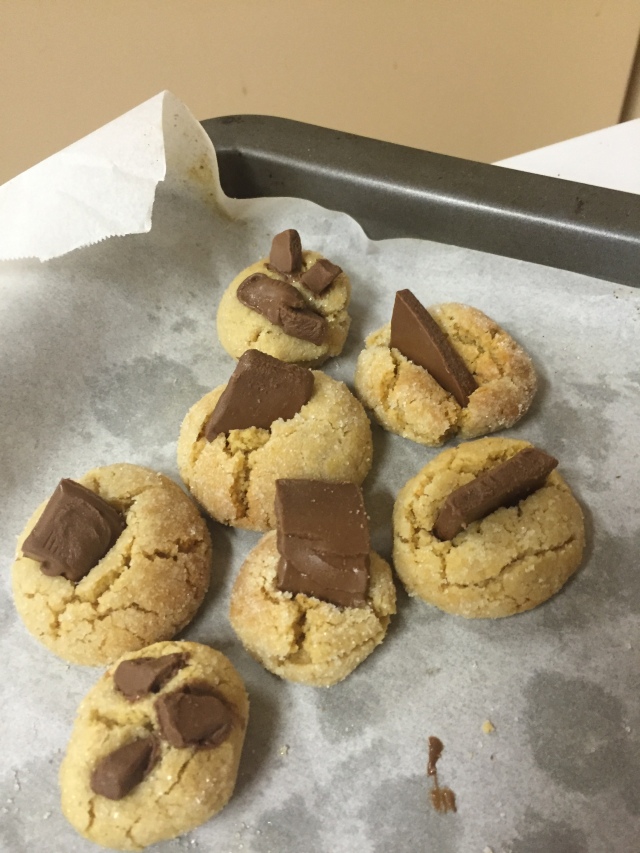


One of the 6 year olds tried to get my attention one day to show me a drawing, ‘Madame Anglais, Madame Anglais!!!‘ (Literally Mrs. English). The teacher reprimanded him, ‘Hey! Her name is Erin! Goodness, if she is Mrs. English than who am I?‘ The student replied innocently, ‘maîtresse?‘ The teacher and I looked at each other and laughed, he had a good point. In elementary school in France, the children call the teachers ‘maîtresse (or maître for a guy teacher)’ which basically means teacher whereas in the US, we would actually use their name and say ‘Mrs. So-and-so’.
Many kids do know my name but they don’t pronounce it quite right. French people don’t in general because the short I sound and the hard american R are very difficult for them. The sounds just don’t exist in the their language. When the kids want to get my attention I hear ‘Ereeen’ ‘Ereen’ with a french R!
Most of the kids can count to ten in English, but they just have the order memorized and don’t actually associate 9 with nine, etc. They have to count on their fingers to arrive there. To be fair, I remember being the same way with Spanish numbers when I was little. When I am drilling number flash cards with them, I have learned to count slowly to the number in my head before before calling on anyone so that I give them enough time to find the answer. I have started singing the song ‘Ten in the bed’ with them because that song counts backwards and hopefully it will help them actually memorize the numbers.
I am glad that I enjoy singing because it is a very helpful tool for keeping English fun and engaging for students and getting them to participate as much as possible. Other language assistants I know are super uncomfortable about having to sing in front of their classes. The kids love singing, especially the 6 and 7-year olds. They smile, rock out, and wiggle in their chairs. And after the song is over they beg for more, ‘Ouias!! Encore!‘ I wish I could take a video to show you guys:)
Thanks for reading, I hope to collect more anecdotes over the next couple of months for another edition of French Kids Say the Darnedest Things









